Substitution of the equipment saves working time
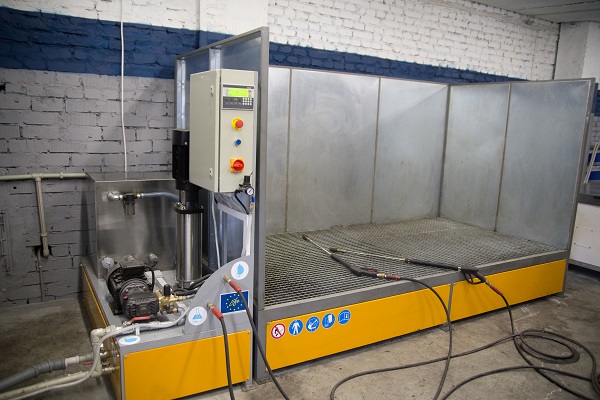 Since the installation of the high pressure and ultrasound equipment, the metalworking company Proring no longer uses as much hazardous substances as previously and because of this has also increased work efficiency.
Since the installation of the high pressure and ultrasound equipment, the metalworking company Proring no longer uses as much hazardous substances as previously and because of this has also increased work efficiency.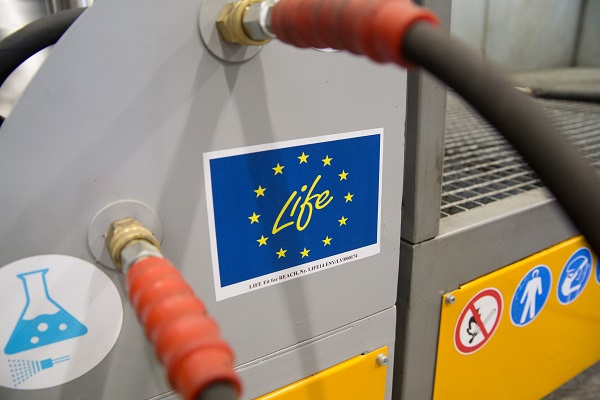
Proring is a small company, employing only six people and mainly serves car repair shops. One of the core services provided is the renewal of cars flywheels. Before the installation of the new equipment, cleaning these parts was a long and messy task which was done by one person daily. The parts were soaked in a special liquid and then carefully thoroughly cleaned by hand to completely free them from the oily dirt.
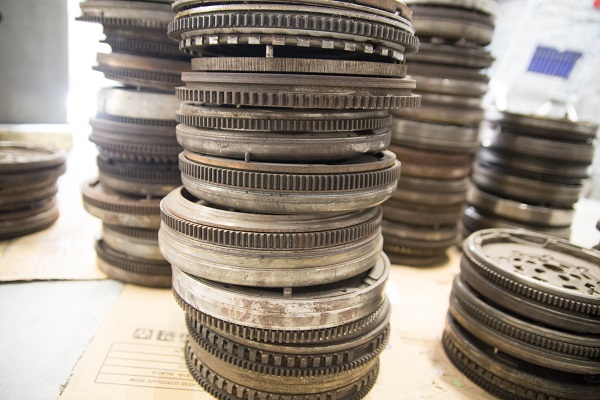 Among the chemicals used to clean flywheels, there were also particularly dangerous chemicals such as sodium 3-nitrobenzenesulphonate, which is a potential skin irritant and can cause allergic skin reactions, and various hydrocarbons that are harmful to the airways and cause damage to the environment.
Among the chemicals used to clean flywheels, there were also particularly dangerous chemicals such as sodium 3-nitrobenzenesulphonate, which is a potential skin irritant and can cause allergic skin reactions, and various hydrocarbons that are harmful to the airways and cause damage to the environment.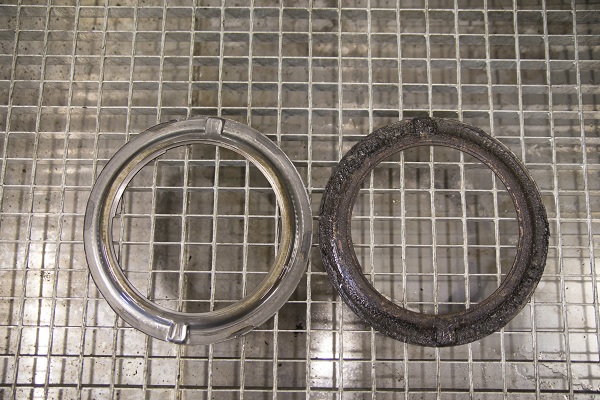
At the moment, when high-pressure and ultrasound equipment is installed in the company's refurbished premises, only a few minutes are required to clean one flywheel. A high pressure jet, which does not need large volumes of water, quickly removes the component from oily deposits. Whereas ultrasound can be used to clean hard-to-reach places.
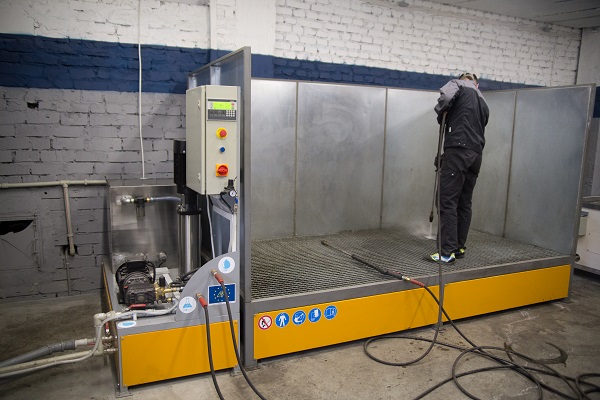
Head of the company Alfred Lazdins acknowledges that the replacement of the equipment was prompted by the fact that hazardous waste was a concern - at least some 100 liters of chemicals were no longer used at work each week and had to be properly disposed of.
“Besides, if earlier it took 8 working hours to accomplish this task, now it can be done in just a few hours. We have become more efficient”, says Alfred Lazdins.
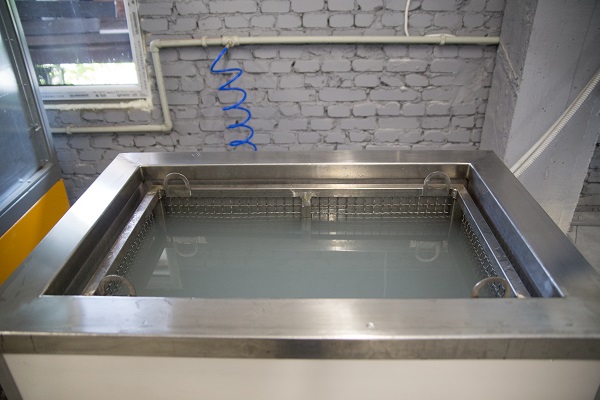 The high pressure and ultrasound equipment comes with a filter, and the amount of chemicals that come into the water from the components is not comparable to that formed when the components were soaked in hazardous liquid.
The high pressure and ultrasound equipment comes with a filter, and the amount of chemicals that come into the water from the components is not comparable to that formed when the components were soaked in hazardous liquid.
"High-pressure equipment may not be a special rarity, but ultrasound equipment of this size could be just a few in Riga," says Alfred Lazdins.